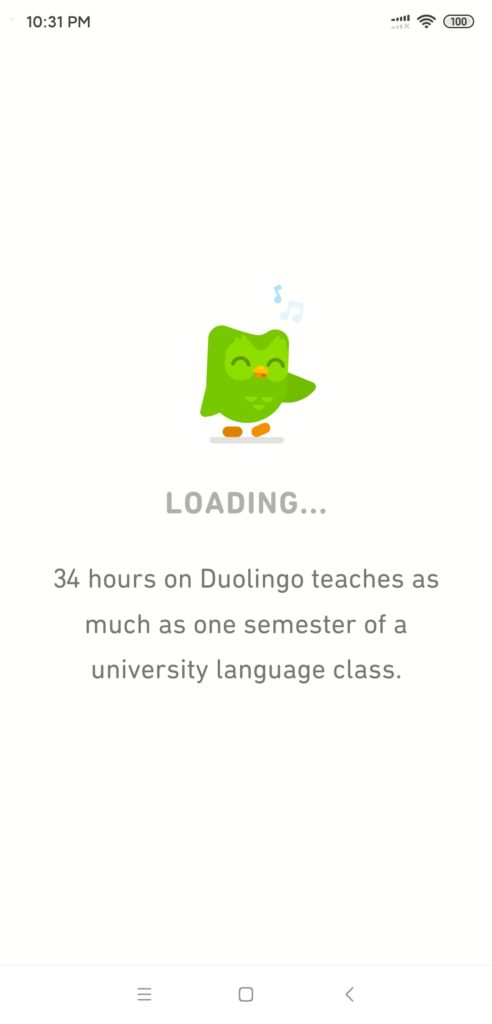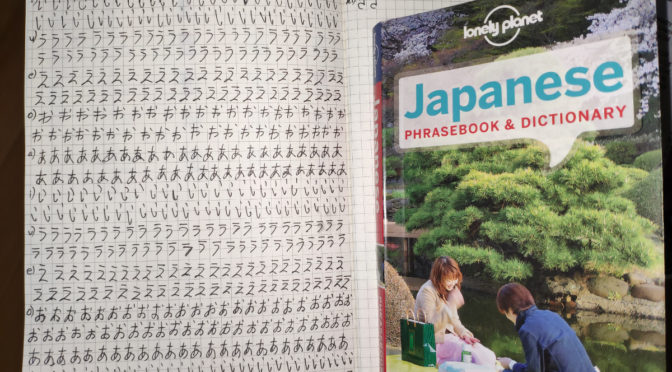So I had this crazy idea.
You might recall I published an article a few weeks back about a few things to keep in mind when learning a language. That post was partly inspired by the book I have just finished reading titled Babel No More: The Search for the World’s Most Extraordinary Language Learners by Michael Erard. The book begins with the author’s pursuit of learning more about a Renaissance polyglot who was reputed to have know over 50 or more languages and then progresses into a search for a modern equivalent.
He continues his search with the idea that there may be some truth to the legend and thus tracks down several of the world’s current polyglots, that is, people who speak a few languages. Throughout his quest he marks down several of the traits that he observes of these people while also inquiring about the polyglots’ methods themselves.
What results is an interesting look at not only how many languages someone can learn, but the limits they face in actually keeping those languages active.
And then two other things happened rather quickly.
First, a cousin of mine mentioned that I had a “facility for language”, meaning that I somehow “got” how to learn languages. I thought it was odd someone would think that about me but I’ll take the compliment. I guess learning Chinese isn’t the first language I’ve learned.
And second, the chance to go to Japan popped up.
Why?
A friend of mine has purchased a three year, multi-entry visa to Japan that she must validate within three months by going to Japan at least once in that time. She asked if I wanted to go. Since I didn’t go back to Canada this year I thought, why not? Oh, and we got the tickets for cheap, 1500 RMB roundtrip (~$300 CAD). I asked if we got seat belts with that price and she confirmed that, yes, we do get seat belts. (Though I neglected to ask if the seats belts actually fastened.)
I thought, if I’m going to Japan for one week (to Nagoya) and I have six weeks to prepare and given that I’ve studied other languages before and so am familiar with the process of learning another language, I am curious to see how much and how fast I can “hack” this language, as the internet seems to call it these days. In other words, why not learn Japanese before we go?
Although I’ve had some exposure to the language, I don’t consider it to be very much. I know I could rely on English and on international travel signals to communicate but I would like to know if it’d be possible to actually use Japanese to get around.
Now, to be clear, I’m not going for complete fluency or mastery, but rather simple communication. I’m aiming for speaking and listening abilities which would include popular phrases and basic understanding of what either people say or what the signs read. I don’t need to be fluent, but I would like to try to hold a basic conversation in the language in that one week period. That means I need to work on pronunciation and vocabulary. I may have to do some writing in order to assist in learning the “Japanese alphabet”, but it won’t be at the same level that I’m trying to learn Mandarin Chinese.
However, I understand there will be a few barriers.
First, Chinese. Many people think that studying Chinese (or Japanese) helps in learning another Asian language, such as Japanese. In my experience, I can see how it’s going to be more of a hindrance since the characters are pronounced completely different.
Second, English. Me and my friend’s English will be much better than any Japanese we can muster and, since we’ll probably be staying in hostels, we will have very limited exposure to actually using any Japanese itself.
Third, travel speak. Not just the simple words but the hand gestures. This easy method of communicating using grunts, hand gestures, simple words and lots of nodding or shaking of the head has served me well throughout my travels. But can I get away from that?
At first glance it looks like I will have to do some writing in order to help in learning the Hiragana and Katagana scripts, but, again, I’m not going for fluency. The good thing about the Hiragana and Katagana scripts is that they can also be used to transliterate the Kanji (the characters borrowed from the Chinese language) so, in knowing them I’d still be able to read or at the very least be able to type it into a dictionary. At the very least I want to be able to fill in or clue myself in on some words that we might see as we go and that we might want to say or request.
I also want to be able to speak the basic phrases so I’m understood the first time, not with much effort or strain on the part of my listener so I may hire a teacher once I get a few hours accomplished.
There are other obstacles before I even get to the country, however. They include: How much time could I put into this goal? Six weeks while working and studying Chinese for at least three to four hours a day, how will I find the time to study another language that has only minimal relation to Mandarin?
I may also lose interest. Learning Japanese sounds like a great idea but, as I start to think of the days flying by as I study yet another language, I start wondering if there isn’t something else I could be doing with my time. (The answer is yes, but I could also work those things into my schedule.)
The one good thing about this idea is its timing. This six-week block includes a smaller workload and, moreover, Spring Festival, which should amount to about two weeks off for me. It is my hope that, in that time, I will be able to not only study Japanese, but continue my Chinese while also doing the other things I need to get done when there is little work to do.
Finally, I can’t say I have any real interest to continue my Japanese studies once the trip is over. This is simply an experiment to see if I myself can actually do it. I don’t want to neglect my Chinese studies so I will probably tackle that first before moving onto Japanese on any given day.
So, that being the case, what will be my approach?

As I’ve already started to dabble and, since I’ve been to Japan before, I’m aware of some of the issues I face. First, the Hiragana and Katagana scripts. Since these scripts are used to write just about everything in Japan I should tackle these first. The question becomes, do I write these out long-hand as I do for Chinese or do I simply use an APP to work on them? Currently I’m doing both. I’m using an APP called “Write It! Japanese” to help in learning the characters.
Next, pronunciation. I’ll need to find some way of being able to listen and repeat the sounds of the language. I was going to use AnkiDroid for this but the language study packs there were above my level, so I needed to find another way.
To assist in familiarizing myself with the sounds of the language as they are spoken, I will incorporate listening to Japanese talk radio and music into my day, but only after I’ve finished my Chinese listening for the day. I’m aiming for about two to three hours of passive listening per day in both languages.
Next, I’m going to use DuoLingo. I’ve heard a few other people using this language APP before and thought I’d give it a shot. It so far seems easy enough and is very game-like, much like Memrise from years before (but Memrise seems to have stopped working on my phone).
One interesting claim that DuoLingo has made is that “34 hours spent on DuoLingo is the same as one semester of study”. I’m interested in seeing if this claim is actually true and will do my best to work my way through the APP. If 34 hours is what it takes, I can choose to do 30 minutes a day and complete “one semester” before the trip or I can ramp up my efforts and aim for one hour or more to see if I can hit “two or more semesters” before the trip. This isn’t a science and I don’t care about the veracity of DuoLingo’s claims, but I do care about putting the time in, and that’s why I’ll also keep track of my time.

Similar to my Chinese studies, I’ll use a spreadsheet and a stopwatch to keep track of my time. Whether the time is spent on writing Japanese characters, listening or playing through DuoLingo, I want to watch how much time I’m putting in to keep myself honest and focused.
Oh, and I’ll use the Lonely Planet’s Japanese Phrasebook that I bought for my trip there a few years back. It seems pretty thorough and, given my timeline, probably much of what I need to know.
So, where to start?
I’ve already started flipping through the lessons in DuoLingo and listening to Japanese radio via an APP. Further, I found another simple APP that focuses only on the Hiragana and Katagana characters which I hope will aid in learning words.
After a week or so, I’ll see how much I’ve learned and if I can either ratchet up my studies, refocus, or just give up. An Google search shows that other suggest to learn the Hiragana first and that it should take about two weeks to learn, depending on one’s study time / focus, etc.
And with that, 行こう!
